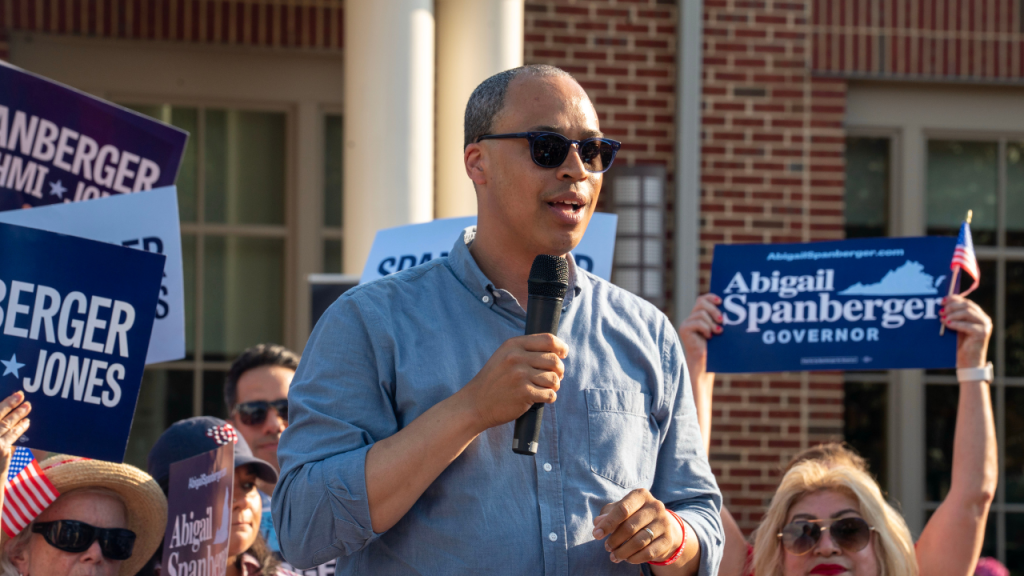Democrats Grapple with Dilemma as Jay Jones Scandal Unfolds in Virginia Attorney General Race
As the Virginia attorney general race intensifies, Democrats face a challenging predicament following the revelation of violent text messages attributed to their candidate, Jay Jones. Many party members have remained notably quiet or offered only mild criticism of the messages while stopping short of calling for Jones to withdraw from the race against Republican incumbent Jason Miyares. This reluctance raises questions about whether Democrats are concerned about the logistics and electoral consequences of replacing Jones on the ballot, especially as the election draws near and early voting has already commenced.
According to Virginia’s Department of Elections, state law provides clear guidelines for such situations, though the timing creates significant complications. While candidates can always withdraw from races, they must do so within 60 days of the election to have their names removed from the ballot. This means that even if Jones were to step down amid the controversy, Democrats would face the impossibility of officially replacing him on the ballot. Further complicating matters, early voting began in late September, with more than 420,000 ballots already cast – nearly double the number from the same point in 2021. Any votes already cast for Jones would still be attributed to him regardless of whether he withdraws, potentially creating an advantage for Miyares.
Virginia law does offer some recourse through Code 24.2-612.1, which mandates that if a candidate withdraws after ballots are printed, election offices must post notices at polling stations informing voters of the withdrawal. These notifications would also be distributed at polls and included with mail-in ballots. In such a scenario, Jones’ votes would still be tallied but not officially counted by election officials due to his withdrawn status. This provision could allow Democrats to promote a consensus write-in candidate through signage at polling locations, attempting to rally support behind an alternative choice even though that person’s name would not appear on the ballot.
The prospect of a successful write-in campaign presents a formidable challenge, however, as such victories are exceedingly rare in Virginia’s electoral history, particularly in high-profile races. Only two candidates whose names did not appear on original ballots have won competitive elections in recent times. The most notable example is Republican Delegate Nick Freitas, who secured his 2019 race with approximately 58% of the vote after missing the deadline to appear on the official ballot. The other case involved Timothy Puryear, who won a local school board position in Brunswick County in 2023. Neither of these examples involved statewide offices like attorney general, making the potential path for a Democratic write-in candidate exceptionally difficult.
Democrats’ hesitation to forcefully address the Jones controversy may stem from these practical electoral concerns, combined with the momentum already building through early voting. The historically stronger Democratic preference for mail-in and early voting means many of their supporters have likely already cast ballots for Jones, votes that cannot be redirected to another candidate. The party thus finds itself in a precarious position: explicitly disavowing Jones might depress turnout among remaining Democratic voters, while failing to adequately address the troubling messages risks appearing to prioritize political expedience over moral principles.
As this situation continues to develop, both parties are carefully calculating their responses. Republicans, led by incumbent Miyares, have forcefully condemned Jones’ messages while questioning Democrats’ muted reactions. Meanwhile, Democratic leaders appear to be weighing their limited options against the backdrop of an already-underway election. This dilemma highlights the intersection of ethical considerations and electoral strategy in modern politics, especially when confronted with scandals that emerge after the campaign machinery is already in full motion. With election day approaching and early voting numbers already surpassing previous cycles, the outcome of this controversy may ultimately depend on voters’ judgment of both Jones’ conduct and the Democratic Party’s response to it.













